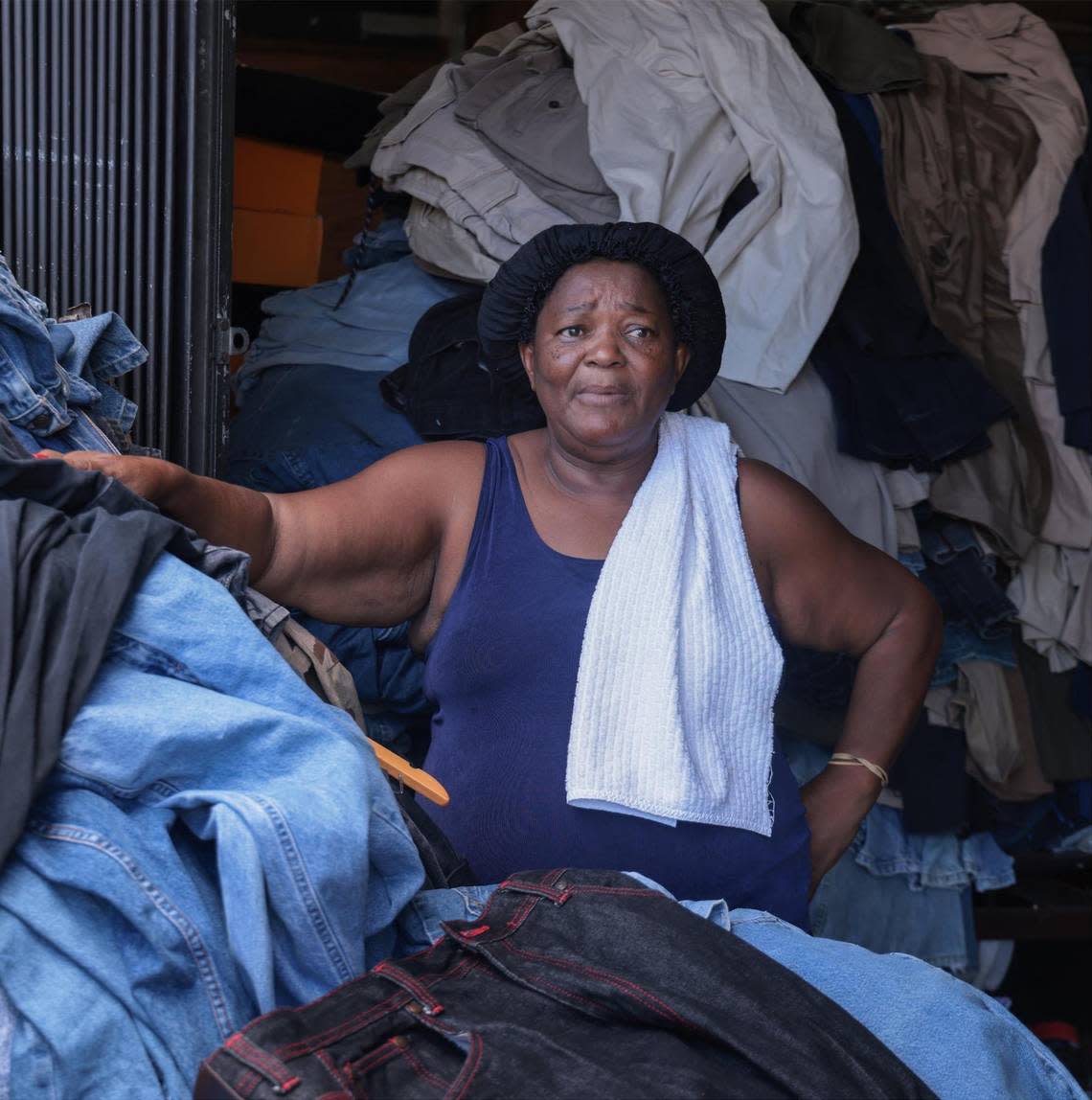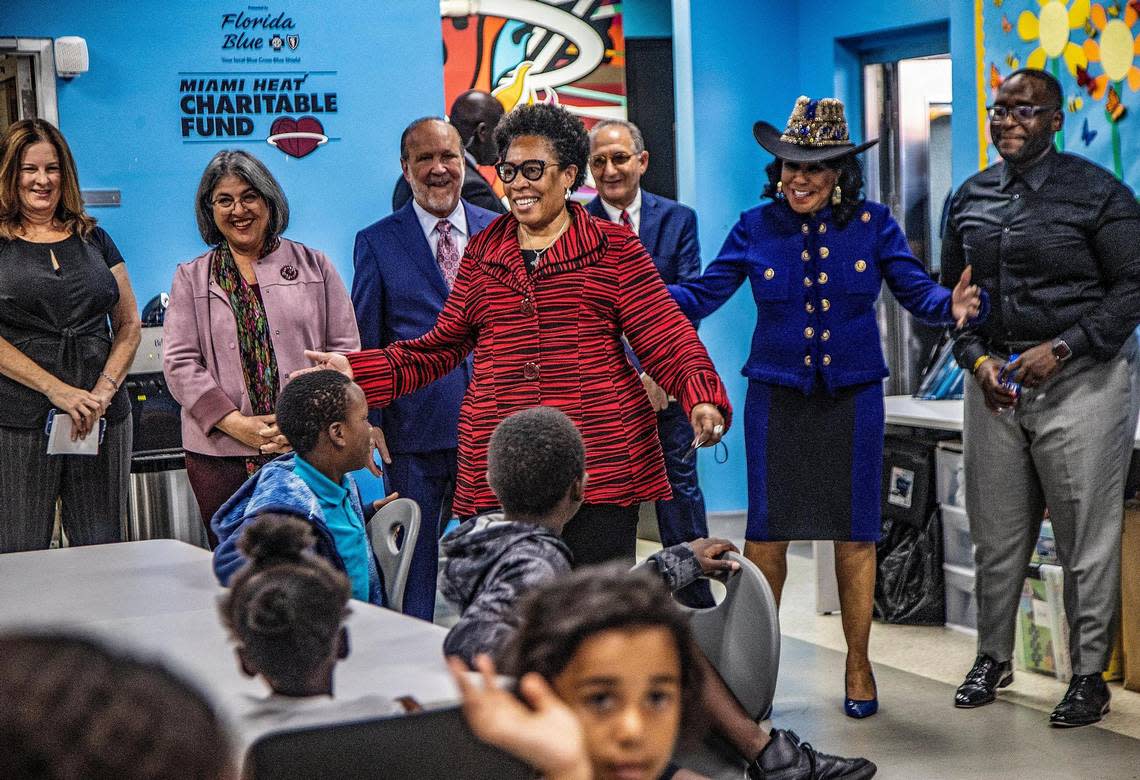The 44 Percent: Jayland Walker, Opa-locka Hialeah Flea Market & Brittney Griner
Unarmed Black man. Confrontation with cops. More than 60 gunshots.
That’s how 25-year-old Jayland Walker’s life came to an end on June 27. It’s a story heard time and time again yet the questions remain the same. Did race play a role? Why were so many shots fired? What will it take for this to stop happening?
It has been more than two years since the murder of George Floyd and the corresponding protests in support of Black lives. At that time, there was this collective belief that maybe something would change. Maybe there would be more of an acknowledgment of a policing problem. Maybe there would be a drop in fatal police shootings. But 773 days after Floyd took his final breaths and begged for his mother, America is dealing with the same thing.

The pain that the Walker family is currently wrestling with doesn’t go away easily. Floyd’s family felt it. As did Breonna Taylor’s family. As did Michael Brown’s family. Similar incidents compound it.
No longer can the issue of police killing Black Americans at a rate more than twice as high as their white counterparts be ignored.
INSIDE THE 305

‘This was our mall.’ What is lost when a popular flea market closes? More than you think:
Talk about the end of an era.
After nearly four decades, the storied Opa-locka Hialeah Flea Market will close its doors on Sept. 30 as its New York-based owners seek to capitalize on the 43 acres of real estate which has recently soared in value. For many immigrants, however, the mall’s closing represents the loss of a once dependable community staple.
“There’s a lot of people who depend on this place,” said Claribel Vasquez, a Dominican Republic native who owns a juice stand at the market. “For humble people of humble means, they’re losing the place where they come to buy their fruits, to buy their groceries.”
Here’s an excerpt from David Ovalle and Jacqueline Charles’ riveting story detailing the market’s origins:
First opened in 1985 at 12705 NW 42nd Ave., it is surrounded by warehouses and far removed from Miami-Dade’s beaches, nightlife, suburbs and traditional malls and strip malls.
But it’s also a bustling place, vibrant with all the smells and stuff of Miami’s polyglot of cultures sold by more than 700 vendors. Shoppers can get their tires changed, buy cheap clothes and cookware, cellphones, couches, toys, power tools, fresh fish, all sorts of foods and even roosters and goats for religious Santería sacrifices — and celebrate by downing beers, eating a thick cornmeal cake known as a pupusa and listening to live salsa bands.
For Hispanics, it’s known as El Pulguero, the flea place. For Haitians, it’s the Ti-Mache, or the little market — decided understatement for what was among the biggest of the flea markets that popped up across Dade County in the 1980s, an expansion fueled by an increasing immigrant population from across Latin America and the Caribbean.

Biden’s housing chief calls Miami the ‘epicenter of the housing crisis in this country’:
Anyone who lives in Miami should not have been surprised when Housing and Urban Development Secretary Marcia Fudge called the 305 the ‘epicenter’ of America’s housing crisis.
Numerous studies bear that out: RedCafe called Miami-Dade “the most competitive market in 2022” for renters; Miami slotted in at fifth in Zumper’s national ranking of average rent; and Realtor.com lists Miami as one of the least affordable places to live.
Fudge proposed a solution centered around local governments creating an easier pathway to build homes.
“We can no longer sit back and say ‘yes we want to make things happen,’ and then make things as difficult as possible through zoning and planning,” Fudge said. In a later interview, she said: “If your zoning says you can only build single-family housing, what have you accomplished?”
OUTSIDE THE 305

Brittney Griner pens Fourth of July letter to Biden:
Two-time Olympic gold medalist Brittney Griner has been stuck in a Russian prison since February. On the Fourth of July, she decided to address President Joe Biden directly.
“As I sit here in a Russian prison, alone with my thoughts and without the protection of my wife, family, friends, Olympic jersey or any accomplishments, I’m terrified I might be here forever,” Griner wrote, according to the New York Times.
Griner, who’s trial began last Friday, was arrested at an airport near Moscow on accusations of having hashish oil. Legal experts say they believe Griner will be found guilty, which carries a maximum 10-year sentence.
“There’s a bias mainly because the Russian judicial system says they really should not go to trial unless the defendant is going to be convicted,” William Pomeranz, the acting director of the Kennan Institute and an expert on Russian law, told The New York Times. “There’s no real idea or expectation that the defendant could be innocent. There’s no presumption of innocence, really.”
On Thursday, Griner pled guilty to drug charges.
Akron police fatally shot unarmed Black man more than 60 times:
Jayland Walker, 25, suffered more than 60 gunshot wounds after Akron police opened fire June 27. He was unarmed.
The incident began as a routine traffic stop which Walker fled, causing police to give chase. Just as the chase started, a gunshot was fired from Walker’s car, police said. After about seven minutes, Walker, who had no criminal record, exited the car and ran away on foot. Police gunned down Walker soon after.
A total of eight officers, all of whom have since been placed on administrative leave, were involved in the fatal shooting, according to police. Walker’s death sparked protests throughout Akron as demonstrators demanded justice.
“It just keeps perpetuating, the same thing, over and over,” said Chris Mercury, 41, an African American barbershop owner in Akron. He added that people in the country would keep thinking that it was the person’s fault that this happened.
“And at the end of the day,” said his wife, Monique, a retail fashion store owner, “the threat to people who were in the same position of Walker, the danger is immediate no matter what they do.”
She added that “people from all races and backgrounds need to realize this is happening, and it just seems to be getting worse.”
HIGH CULTURE

Do yourself a favor and go see Omar Apollo live:
Ok so I know this space is reserved for all things African, however, I want to put you on to one of my favorite artists so bear with me. One listen to “Want U Around” and you’ll see why.
A few months back, I had the pleasure of attending Omar Apollo’s Miami show and let me tell you: this man can put on a SHOW.
I felt like I attended three concerts in one night. From the sultry, seductive “I Want You Around” to the thumping, Neptunes-produced “Tamagotchi” to the Latin ballad “En El Olvido” inspired by his Mexican roots. Apollo moved through genres as effortlessly as a fish swims through water. You can see how Apollo takes after Prince and Lenny Kravitz (he too can play guitar and whipped it out for a crazy solo while performing “Bad Life”) just with a Latin twist.
In all honesty, I thought Apollo was Black after the first time I heard “Want U Around” due to the way he carried the track’s runs. There’s just something about the way Apollo can drop the soul in and out of his voice. It’s truly incredible.
Where does “The 44 Percent” name come from? Click here to find out how Miami history influenced the newsletter’s title.
